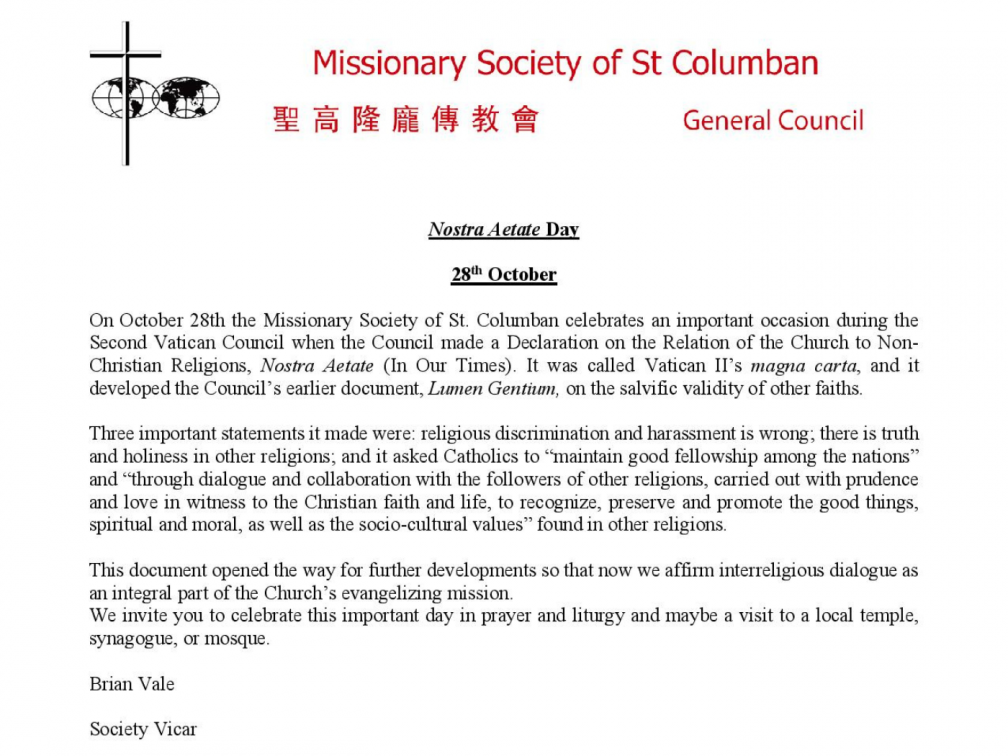Engaging in interreligious dialogue (IRD) has been a source of joy and challenge in my experience as a missionary in Britain for the past decades. As a woman of faith I have discovered that, while witnessing my own faith and way of life, I am called to acknowledge, preserve and encourage the spiritual and moral truths found among other faiths, societies and cultures, as Nostra Aetate proclaimed nearly 60 years ago.
Last 28th October the Catholic Church celebrated this Nostra Aetate ground-breaking Vatican Council declaration on the relation of the Church to Non-Christian Religions. Its contents highlight dialogue as an integral part of the Church’s evangelising mission, and also offer the magisterial basis to building collaboration and good relations with people of other faiths and none.
The meeting of Pope Francis with the Grand Imam Ahmad Al-Tayyeb in Abu Dhabi and his words written in Fratelli Tutti have acted again as encouragement for my encounter with other believers and non-believers. Together they declared that ‘God has created all human beings equal in rights, duties and dignity, and has called them to live together as brothers and sisters.’ It was a poignant encounter modelling what the Bishops of India had already stated in 2016, and that is that IRD doesn’t simply happen for the sake of diplomacy, consideration, and tolerance. The aim is to engage in dialogue to build relationships and to live in peace and harmony, in a spirit of truth and love.
The celebration of Nostra Aetate day acts as a reminder of the important place of dialogue in the mission of the Church. It also reminds me of the learnings I have gained through engaging in dialogue initiatives in Birmingham.
Firstly, that building relationships and engaging in dialogues is a slow process that requires humbleness and patience. This dialogue of life and action is hard to measure in conventional aims and outcomes and crucially, it requires no academic qualifications nor titles in order for it to be fruitful. It requires an intentionality in building meaningful relations that will break down barriers of fear and division and will be conducive to real change and impact people’s lives.
Secondly, I’ve learnt that all encounters must be anchored in the appreciation of the beauty that diversity brings, and the respectful realisation of our differences. Empathy must be at the centre of dialogue. I have learnt to appreciate and long for my Muslim friend’s rhythmic prayer life, their sense of belonging together and deep search for peace and wellbeing.
And last but not least, I’ve come to realise that my own faith has been strengthened as a result of interreligious dialogue. The harvest of all the encounters I’ve had throughout the years have helped me deepen my prayer life while at the same time learning that there are many forms one can pray and seek to build God’s Kingdom….. I’ve developed a more rooted connection with nature and a more respectful approach to the gift of creation we all have received.


